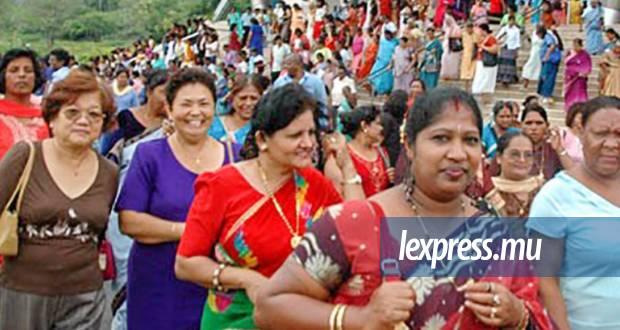Africa-Press – Mauritius. Yesterday, Tuesday September 7, Pravind Jugnauth launched a training course in “Gender mainstreaming” for 150 civil servants. Objectives: identify gender gaps in ministries and develop a strategy.
While the initiative is well received by women’s rights defenders, on the other hand, all agree that the “gender gaps” will still persist in 2021. Why?
“Gender gaps are not new, but they are rooted in our history. Before, more boys pursued higher education compared to girls. Obviously, this has left its mark.
Since then, there has been progress, especially with women occupying positions at fairly high levels, even very high levels for the country, ”notes Kris Ponnusamy, a former senior official.
Indeed, according to the Southern African Gender Progress Study, conducted between 2019 and 2021, Mauritius has a score of 72% against a rate of 61% for the region in terms of progress for gender attitudes.
In addition, the Global Gender Gap report from March 2021 ranks Mauritius 110th out of 156 countries. The Top 3 includes Iceland, Finland and Norway; and the bottom three Iraq, Yemen and Afghanistan respectively. In 2020, our island was ranked 115th, equivalent to a progression of five places.
Slow but noticeable progress over the past five years, says Anushka Virahsawmy, director of the Gender Links association, which welcomes the gender mainstreaming training launched yesterday for 150 civil servants.
In 2020, the number of employees trained was 60 for this program which will last for five years and will be delivered by the Ministry of Gender Equality, in collaboration with the Civil Service College Mauritius.
“This implies incorporating the notion of gender into the policies and operations of a country as well as into the budgets devoted to men and women.
This is a step forward, a great step. But how will this be integrated? This is a huge job that will not happen overnight. ” Despite regional and local progressions, in 2021, gender gaps persist, deplores Prisheela Mottee, president and founder of Raise Brave Girls.
Why ? Blame it on the lack of “empowerment”, she replies. “Maurice has come a long way but maintains patriarchal practices such as pressure for women to marry around 25 and have children rather than a career.
These little details matter a lot to couples, regardless of their level of education, ”she says. Definitely, these gender disparities are a big problem for men, women and the LGBT community, continues Anushka Virahsawmy.
According to Statistics Mauritius, only 11.9% of women were at the head of companies compared to 18.6% of men last year. In addition, Mauritian women are largely under-represented in decision-making.
Only three women hold ministerial posts out of 24, according to national statistics. Gaps that will be identified by the Gender mainstreaming project.
“Why have we never had a woman head of the finance ministry, prime minister or leader of a political party? Does this mean that some are not competent? ” asks the director of Gender Links.
Extending this thought, Kris Ponnusamy evokes other areas where women do not seek the highest office, either as police or prison commissioner. However, other sectors are more conducive to it, in particular the judiciary with a remarkable breakthrough for women and academia with women scientists and heads of departments.
On this aspect, Statistics Mauritius mentions that the proportion of women occupying positions of responsibility including those of Senior Chief Executive, Permanent Secretary, Deputy Permanent Secretary, directors, judges and magistrates was 39.7% in 2020.
“The initiative of the Gender mainstreaming will create role models. We must close the gap for a society of equal opportunities for all, “he observes.
How do you resolve these gender disparities for good? A legal framework and action plans that really materialize, says the director of Gender Links. “Once these are instituted, training must be increased until gender becomes a reflex.
We are still in a patriarchal country and we need to make efforts to reverse the situation, which is not the case in Finland, for example, “she says. For the former senior official, we must advocate an acceleration in sectors where progress is stagnating.
“I am thinking of the private sector, especially on boards of directors. There needs to be a more coordinated movement for women, which can also be applied in the public sector, ”he suggests.
Prisheela Mottee designates three levels of intervention: an analysis of current anomalies, development of an action plan and finally, its evaluation.
“You can see the measures instituted for men and women at the end of the fiscal year. Ditto for salaries where the difference is still visible in the private sector.
An example integrating Gender mainstreaming is the change to parental leave rather than maternity or paternity leave. These are possibilities that can be inserted as actions in a Gender Statement, ”she says.







